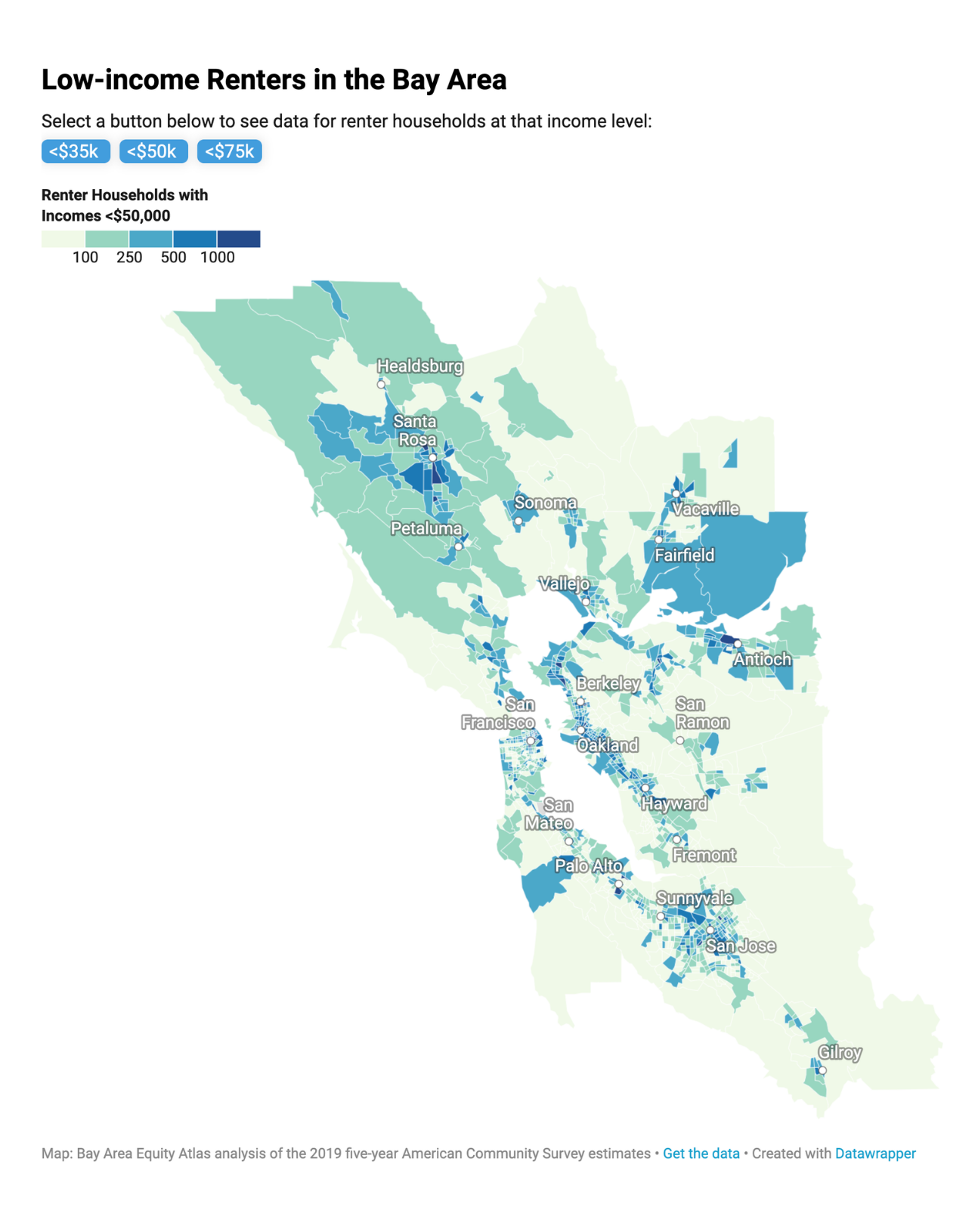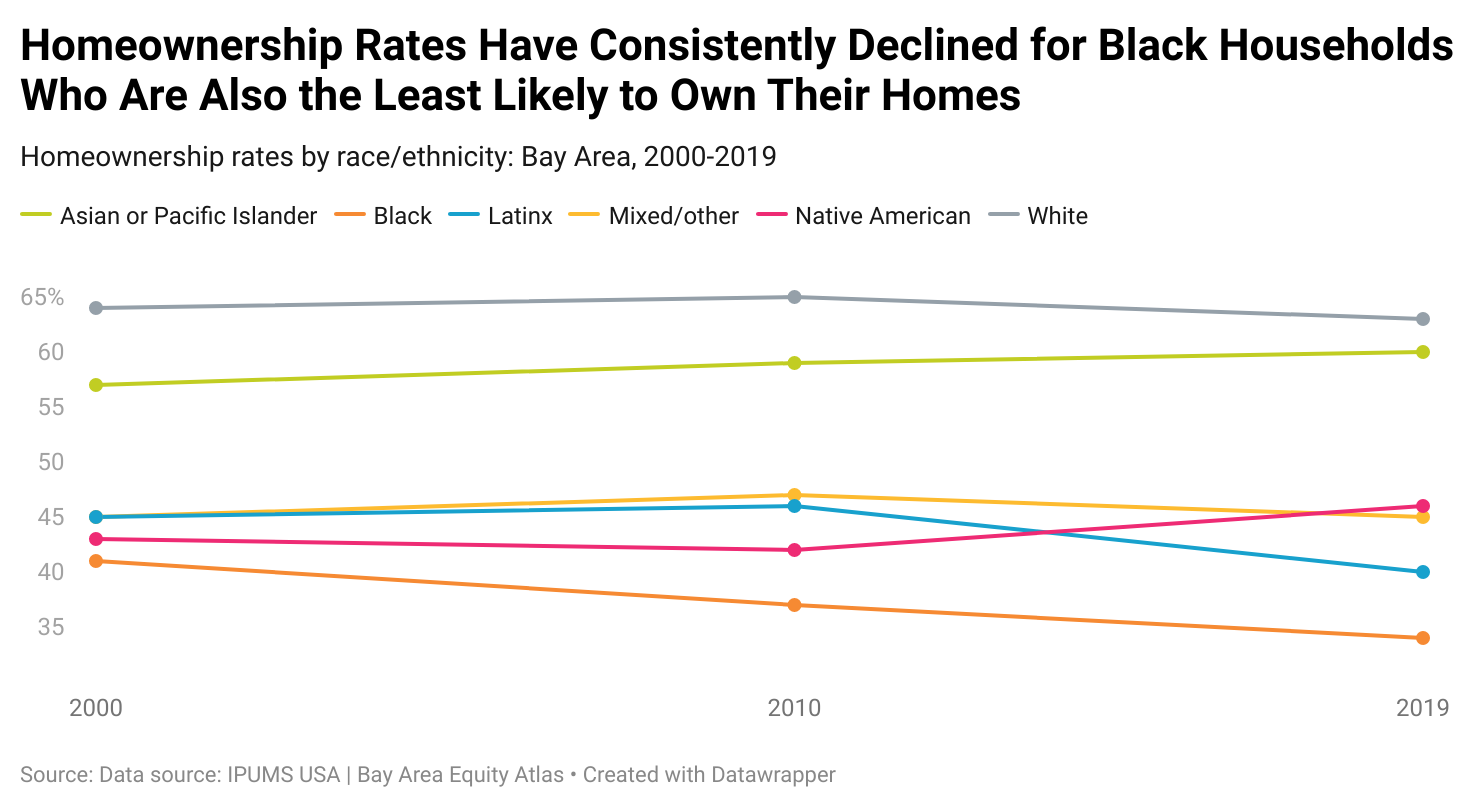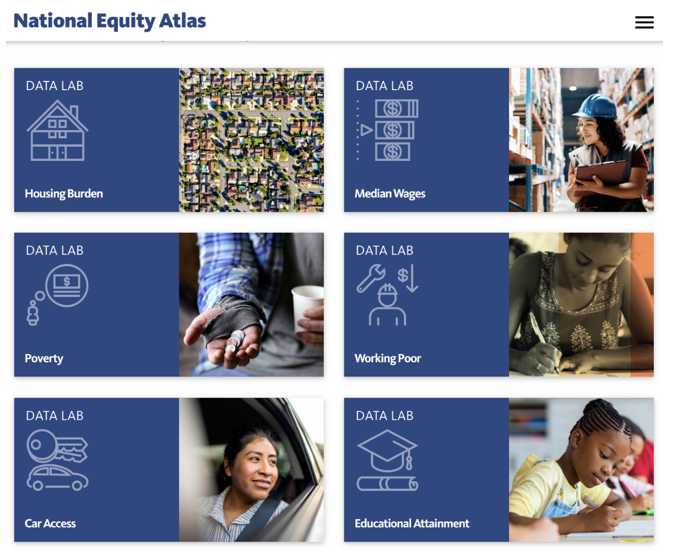Using Data to Map Where State and Local Leaders Should Prioritize Housing Resources
Dear Atlas users,
It’s been a while since our last update, so we’re excited to reconnect with you. This year has kept our team busy thus far: We’ve refreshed our indicator data, published new analyses, and presented to Bay Area partners. And that’s just the beginning of what we have in store for 2022. Explore our latest updates:
New Analysis: Where are Renters with Low Incomes Living in the Bay Area?
The Bay Area is home to more than 385,000 renters with incomes below $50,000 per year. In our latest analysis, Ángel Mendiola Ross maps where they live and offers insights on how this data can inform state and local housing affordability efforts. The map shows that nearly half of the low-income renters in the nine-county region live in communities without robust tenant protections. Given the ongoing pandemic and the housing affordability crisis, many of these renters have lingering rent debt that places them in further financial distress and at greater risk of eviction. As cities and counties are determining how to spend their American Rescue Plan fiscal recovery allocations, understanding where the greatest need exists can help them equitably target protections and resources for renters.
Showcasing the Diversity of the Bay Area’s Asian and Pacific Islander Population
More than two million people (27 percent) living in the Bay Area identify as Asian American or Pacific Islander (API). Using the 2019 American Community Survey data we recently added to the Atlas, we created a profile of the Bay Area’s API population to illustrate its diversity and to map where more than a dozen Asian sub-communities live across the nine-county region. Our analysis shows that the Bay Area’s API community is among its fastest-growing groups. From 2000 to 2019, the API population in the region grew by 57 percent. The Bay Area’s API communities also reflect a wealth of diversity: The Chinese population is the largest API ancestry group (30 percent of all APIs), followed by the Indian and Filipinx (each 16 percent), Vietnamese (8 percent), Korean (4 percent), Japanese (3 percent), and Taiwanese populations (2 percent). Having a deeper understanding of the differences within this broad racial and ethnic group can help foster the development of more equitable and targeted policy solutions.
In Case You Missed It: Check Out Our Dashboard on Black Prosperity in the Bay Area
Are Black people living in the Bay Area prospering? We recently worked with Tableau expert Chantilly Jaggernauth to produce a regional dashboard that presents indicators of equity for the Bay Area’s Black population, including economic and political inclusion, education, and justice. This focused examination of racial disparities within the region illuminates the urgent need for solutions that address the root of inequities in the Bay Area. The dashboard is part of the Racial Equity Data Lab, which uses Tableau software and Atlas data to help people and communities tell their own stories through data visualization.
Register Now: KQED Live Event on Reparations for Black People in California
California is the first state in the nation to establish a task force to research and develop proposals on how to make reparations for Black Americans. But what are we really talking about when discussing reparations? And why now? Join Sarah Treuhaft tomorrow at 7 pm PT/10 pm ET for a KQED-hosted event exploring how the push to get reparations for Black Californians is taking shape. Register here to be part of the conversation.
Join the National Equity Atlas Team
The National Equity Atlas team is actively recruiting for a Senior Associate to lead Atlas research engagements with community partners, including the development of reports, analyses, and local equity data tools; contribute research and data support to the Bay Area Equity Atlas, and support the further development of the Atlas tool. The ideal candidate is passionate about producing data and research that is relevant and actionable for those working on the front lines to advance racial economic equity. Please help us spread the word!
Thank you,
Bay Area Equity Atlas team




